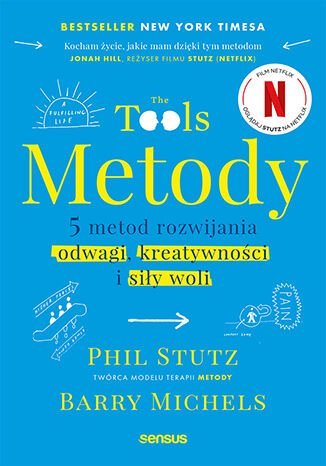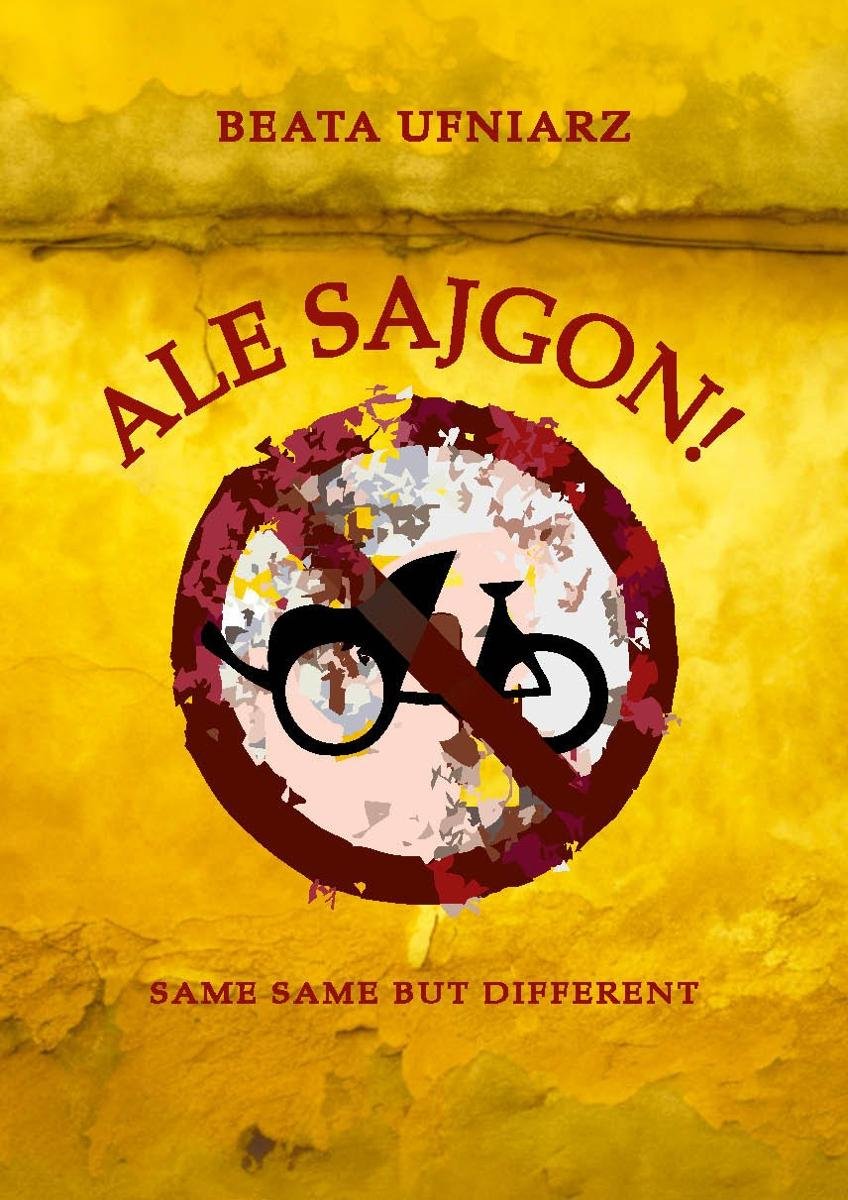Stross Charles - Palimpsest
| Szczegóły | |
|---|---|
| Tytuł | Stross Charles - Palimpsest |
| Rozszerzenie: | |
Jesteś autorem/wydawcą tego dokumentu/książki i zauważyłeś że ktoś wgrał ją bez Twojej zgody? Nie życzysz sobie, aby pdf był dostępny w naszym serwisie? Napisz na adres [email protected] a my odpowiemy na skargę i usuniemy zabroniony dokument w ciągu 24 godzin.

Stross Charles - Palimpsest PDF Ebook podgląd online:
Pobierz PDF
Zobacz podgląd Stross Charles - Palimpsest pdf poniżej lub pobierz na swoje urządzenie za darmo bez rejestracji. Stross Charles - Palimpsest Ebook podgląd za darmo w formacie PDF tylko na PDF-X.PL. Niektóre ebooki są ściśle chronione prawem autorskim i rozpowszechnianie ich jest zabronione, więc w takich wypadkach zamiast podglądu możesz jedynie przeczytać informacje, detale, opinie oraz sprawdzić okładkę.
Stross Charles - Palimpsest Ebook transkrypt - 20 pierwszych stron:
Strona 1
Strona 2
Palimpsest
(Copyright Charles Stross, 2009. This version made available for 2010 Hugo Award voters by kind
permission of the publishers. All rights reserved.
FRESH MEAT
This will never happen:
You will flex your fingers as you stare at the back of the youth you are going to kill, father to the man
who will never now become your grandfather; and as you trail him home through the snowy night,
you’ll pray for your soul, alone in the darkness.
Memories are going to come to you unbidden even though you’ll try to focus on the task in hand. His
life—that part of it which you arrived kicking and squalling in time to share with him before the end
—will pass in front of your eyes. You will remember Gramps in his sixties, his hands a bunch of
raisin-wrinkled grape joints as he holds your preteen wrists and shows you how to cast the fly across
the water. And you’ll remember the shrunken husk of his seventies, standing speechless and numb by
Gran’s graveside in his too-big suit, lying at last alone in the hospice bed, breath coming shallow and
fast as he sleeps alone with the cancer. These won’t be good memories. But you know the rest of the
story too, having heard it endlessly from your parents: young love and military service in a war as
distant as faded sepia photographs from another generation’s front, a good job in the factory and a
wife he will quietly adore who will in due course give him three children, from one of whose loins
you in turn are drawn. Gramps will have a good, long life and live to see five grandchildren and a
myriad of wonders, and this boy-man on the edge of adulthood who you are compelled to follow as
he walks to the recruiting office holds the seeds of the man you will remember … But it’s him or you.
Gramps would have had a good life. You must hold on to that. It will make what’s coming easier.
You will track the youth who will never be your grandfather through the snow-spattered shrubbery
and long grass along the side of the railroad tracks, and the wool-and-vegetable-fiber cloth that you
wear—your costume will be entirely authentic—chafes your skin. By that point you won’t have
bathed for a week, or shaved using hot water: you are a young thug, a vagrant, and a wholly bad sort.
That is what the witnesses will see, the mad-eyed young killer in the sweat-stained suit with the knife
and his victim, so vulnerable with his throat laid open almost to the bone. He’ll sprawl as if he is
merely sleeping. And there will be outrage and alarm as the cops and concerned citizens turn out to
hunt the monster that took young Gerry from his family’s arms, and him just barely a man: but they
won’t find you, because you’ll push the button on the pebble-sized box and Stasis Control will open
up a timegate and welcome you into their proud and lonely ranks.
Strona 3
When you wake up in your dorm two hundred years-objective from now, bathed in stinking fear-
sweat, with the sheet sucking onto your skin like a death-chilled caul, there will be nobody to comfort
you and nobody to hold you. The kindness of your mother’s hands and the strength of your father’s
wrists will be phantoms of memory, ghosts that echo round your bones, wandering homeless through
the mausoleum of your memories.
They’ll have no one to remember their lives but you; and all because you will believe the recruiters
when they tell you that to join the organization you must kill your own grandfather, and that if you do
not join the organization, you will die.
(It’s an antinepotism measure, they’ll tell you, nodding, not unkindly. And a test of your ruthlessness
and determination. And besides, we all did it when it was our turn.)
Welcome to the Stasis, Agent Pierce! You’re rootless now, an orphan of the time stream, sprung from
nowhere on a mission to eternity. And you’re going to have a remarkable career.
Yellowstone
“You’ve got to remember, humanity always goes extinct,” said Wei, staring disinterestedly at the line
of women and children shuffling toward the slave station down by the river. “Always. A thousand
years, a hundred thousand, a quarter million—doesn’t matter. Sooner or later, humans go extinct.” He
was speaking Urem, the language the Stasis used among themselves.
“I thought that was why we were here? To try and prevent it?” Pierce asked, using the honorific form
appropriate for a student questioning his tutor, although Wei was, in truth, merely a twelfth-year
trainee himself: the required formality was merely one more reminder of the long road ahead of him.
“No.” Wei raised his spear and thumped its base on the dry, hard-packed mud of the observation
mound. “We’re going to relocate a few seed groups, several tens of thousands. But the rest are still
going to die.” He glanced away from the slaves: Pierce followed his gaze.
Along the horizon, the bright red sky darkened to the color of coagulated blood on a slaughterhouse
floor. The volcano, two thousand kilometers farther around the curve of the planet, had been pumping
ash and steam into the stratosphere for weeks. Every noon, in the badlands where once the
Mississippi delta had writhed, the sky wept brackish tears.
“You’re from before the first extinction epoch, aren’t you? The pattern wasn’t established back then.
That must be why you were sent on this field trip. You need to understand that this always happens.
Why we do this. You need to know it in your guts. Why we take the savages and leave the civilized to
die.”
Like Wei, and the other Stasis agents who had silently liquidated the camp guards and stolen their
identities three nights before, Pierce was disguised as a Benzin warrior. He wore the war paint and
Strona 4
beaten-aluminum armbands, bore the combat scars. He carried a spear tipped with a shard of
synthetic diamond, mined from a deep seam of prehistoric automobile windshields. He even wore a
Benzin face: the epicanthic folds and dark skin conferred by the phenotypic patches had given him
food for thought, an unfamiliar departure from his white-bread origins. Gramps (he shied from the
memory) would have died rather than wear this face.
Pierce was not yet even a twelve-year trainee: he’d been in the service for barely four years-
subjective. But he was ready to be sent out under supervision, and this particular operation called for
warm bodies rather than retrocausal subtlety.
Fifty years ago, the Benzin had swept around the eastern coastline of what was still North America,
erupting from their heartland in the central isthmus to extend their tribute empire into the scattered
tribal grounds of post-Neolithic nomads known to Stasis Control only by their code names: the
Alabamae, the Floridae, and the Americae. The Benzin were intent on conquering the New World,
unaware that it had been done at least seventeen times already since the start of the current Reseeding.
They did not understand the significance of the redness in the western sky or the shaking of the
ground, ascribing it to the anger of their tribal gods. They had no idea that these signs heralded the
end of the current interglacial age, or that their extinction would be a side effect of the coming
Yellowstone eruption—one of a series that occurred at six-hundred-thousand-year intervals during
the early stages of the Lower First Anthropogenic epoch.
The Benzin didn’t take a long view of things, for although their priest-kings had a system of writing,
most of them lived in the hazily defined ahistorical myth-world of the preliterate. Their time was
running out all the same. Yellowstone was waking, and even the Stasis preferred to work around such
brutal geological phenomena, rather than through them.
“Yes, but why take them?” Pierce nodded toward the silently trudging Alabamae women and
children, their shoulders stooped beneath the burden of their terror. They’d been walking before the
spear points of their captors for days; they were exhausted. The loud ones had already died, along
with the lame. The raiders who had slain their men and stolen them away to a life of slavery sat
proudly astride their camels, their enemies’ scalps dangling from their kotekas like bizarre pubic
wigs. “The Benzin may be savages, but these people are losers—they came off worse.”
Wei shook his head minutely. “The adults are all female, and mostly pregnant at that. These are the
healthy ones, the ones who survived the march. They’re gatherers, used to living off the land, and
they’re all in one convenient spot.”
Pierce clenched his teeth, realizing his mistake. “You’re going to use them for Reseeding? Because
there are fewer bodies, and they’re more primitive, more able to survive in a wilderness … ?”
“Yes. For a successful Reseeding we need at least twenty thousand bodies from as many diverse
groups as possible, and even then we risk a genetic bottleneck. And they need to be able to survive in
the total absence of civilization. If we dumped you in the middle of a Reseeding, you would probably
not last a month. No criticism intended; neither would I. Those warriors”—Wei raised his spear
again, as if saluting the raiders—“require slaves and womenfolk and a hierarchy to function. The tip
of your spear was fashioned by a slave in the royal armories, not by a warrior. Your moccasins and
Strona 5
the cloth of your pants were made by Benzin slaves. They are halfway to reinventing civilization:
given another five thousand years-subjunctive, their distant descendants might build steam engines
and establish ubiquitous recording frameworks, bequeathing their memories to the absolute future. But
for a Reseeding they’re as useless as we are.”
“But they don’t have half a deci—”
“Be still. They’re moving.”
The last of the slaves had been herded between the barbed hedges of the entrance passageway, and
the gate guards lifted the heavy barrier back into position. Now the raiders kicked their mounts into
motion, beating and poking them around the side of the spiny bamboo fence in a circuit of the guard
posts. Wei and Pierce stood impassively as the camel riders spurred down on them. At the last
moment, their leader pulled sideways, and his mount snorted and pawed at the ground angrily as he
leaned toward Wei.
“Hai!” he shouted, in the tonal trade tongue of the northern Benzin. “I don’t remember you!”
“I am Hawk! Who in the seventh hell are you?”
Wei glared at the rider, but the intruder just laughed raucously and spat over the side of his saddle: it
landed on the mud, sufficiently far from Wei to make it unclear whether it was a direct challenge.
Pierce tightened his grip on his spear, moving his index finger closer to the trigger discreetly printed
on it. High above them, a vulturelike bird circled the zone of confrontation with unnatural precision,
its fire-control systems locked on.
“I am Teuch,” said the rider, after a pause. “I captured these women! In the name of our Father I took
them, and in the name of our Father I got them with children to work in the paddies! What have you
done for our Father today?”
“I stand here,” Wei said, lifting the butt of his spear. “I guard our Father’s flock while assholes like
you are out having fun.”
“Hai!” The rider’s face split in a broad, dust-stained grin. “I see you, too!” He raised his right fist
and for an instant Pierce had an icy vision of his guts unraveling around a barbarian’s spear; but the
camel lifted its head and brayed as Teuch nudged it in a surprisingly delicate sidestep away from
Wei, away from the hedge of thorns, away from the slave station. And away from the site of the
timegate through which the evacuation team would drive the camp inmates in two days’ time. The
prisoners would be deposited at the start of the next Reseeding. But none of the Benzin would live to
see that day, a hundred thousand years-objective or more in the future.
Perhaps their camels would leave their footprints in the choking, hot rain of ash that would roll across
the continent with tomorrow’s sunset. Perhaps some of those footprints would fossilize, so that the
descendants of the Alabamae slaves would uncover them and marvel at their antiquity in the age to
come. But immortality, Pierce thought, was a poor substitute for not dying.
Strona 6
Paying Attention in Class
It was a bright and chilly day on the roof of the world. Pierce, his bare head shaved like the rest of the
green-robed trainees, sat on a low stool in a courtyard beneath the open sky, waiting for the tutorial to
begin. Riding high above the ancient stone causeway and the spiral minarets of the Library Annex, the
moon bared her knife-slashed cheeks at Pierce, as if to remind him of how far he’d come.
“Good afternoon, Honorable Students.”
The training camp nestled in a valley among the lower peaks of the Mediterranean Alps. Looming
over the verdant lowlands of the Sahara basin, in this epoch they rose higher than the stumps of the
time-weathered Himalayas.
“Good afternoon, Honorable Scholar Yarrow,” chanted the dozen students of the sixth-year class.
Urem, like Japanese before it, paid considerable attention to the relative status of speaker and
audience. Many of the cultures the Stasis interacted with were sensitive to matters of gender, caste,
and other signifiers of rank, so the designers of Urem had added declensions to reflect these matters.
New recruits were expected to practice the formalities diligently, for a mastery of Urem was
important to their future—and none of them were native speakers.
“I speak to you today of the structure of human history and the ways in which we may interact with it.”
Yarrow, the Honorable Scholar, was of indeterminate age: robed in black, her hair a stubble-short
golden halo, she could have been anywhere from thirty to three hundred. Given the epigenetic
overhaul the Stasis provided for their own, the latter was likelier—but not three thousand. Attrition in
the line of duty took its toll over the centuries. Yarrow’s gaze, when it fell on Pierce, was clear, her
eyes the same blue as the distant horizon. This was the first time she had lectured Pierce’s class—not
surprising, for the college had many tutors, and the path to graduation was long enough to tax the most
disciplined. She was, he understood, an expert on what was termed the Big Picture. He hadn’t looked
her up in the local Library Annex ahead of time. (In his experience it was generally better to approach
these lessons with an open mind. And in any case, students had only patchy access to the records of
their seniors.)
“As a species, we are highly unstable, prone to Malthusian crises and self-destructive wars. This
apparent weakness is also our strength—when reduced to a rump of a few thousand illiterate hunter-
gatherers, we can spread out and tame a planet in mere centuries, and build high civilizations in a
handful of millennia.
“Let me give you some numbers. Over the two and a half million epochs accessible to us—each of
which lasts for a million years—we shall have reseeded starter populations nearly twenty-one
million times, with an average extinction period of sixty-nine thousand years. Each Reseeding event
produces an average of eleven-point-six planet-spanning empires, thirty-two continental empires,
Strona 7
nine hundred and sixty-odd languages spoken by more than one million people, and a total population
of one-point-seven trillion individuals. Summed over the entire life span of this planet—which has
been vastly extended by the cosmological engineering program you see above you every night—there
are nearly twenty billion billion of us. We are not merely legion—we rival in our numbers the stars
of the observable universe in the current epoch.
“Our species is legion. And throughout the vast span of our history, ever since the beginning of the
first panopticon empire during our first flowering, we have committed to permanent storage a record
of everything that has touched us—everything but those events that have definitively unhappened.”
Pierce focused on Yarrow’s lips. They quirked slightly as she spoke, as if the flavor of her words
was bitter—or as if she was suppressing an unbidden humor, intent on maintaining her gravitas before
the class. Her mouth was wide and sensual, and her lips curiously pale, as if they were waiting to be
warmed by another’s touch. Despite his training, Pierce was as easily distracted as any other
twentysomething male, and try as he might, he found it difficult to focus on her words: he came from
an age of hypertext and canned presentations and found that these archaic, linear tutorials challenged
his concentration. The outward austerity of her delivery inflamed his imagination, blossoming in a
sensuous daydream in which the wry taste of her lips blended with the measured cadences of her
speech to burn like fire in his mind.
“Uncontrolled civilization is a terminal consumptive state, as the victims of the first extinction
discovered the hard way. We have left their history intact and untouched, that we might remember our
origins and study them as a warning; some of you in this cohort have been recruited from that era. In
other epochs we work to prevent wild efflorescences of resource-depleting overindustrialization, to
suppress competing abhuman intelligences, and to prevent the pointless resource drain of attempts to
colonize other star systems. By shepherding this planet’s resources and manipulating its star and
neighboring planets to maximize its inhabitable duration, we can achieve Stasis—a system that
supports human life for a thousand times the life of the unmodified sun, and that remembers the time
line of every human life that ever happened.”
Yarrow’s facts and figures slid past Pierce’s attention like warm syrup. He paid little heed to them,
focusing instead on her intonation, the little twitches of the muscles in her cheeks as she framed each
word, the rise and fall of her chest as she breathed in and out. She was impossibly magnetic: a puritan
sex icon, ascetic and unaware, attractive but untouchable. It was foolish in the extreme, he knew, but
for some combination of tiny interlocking reasons he found her unaccountably exciting.
“All of this would be impossible without our continued ownership of the timegate. You already know
the essentials. What you may not be aware of is that it is a unique, easily depleted resource. The
timegate allows us to open wormholes connecting two openings in four-dimensional space-time. But
the exclusion principle prevents two such openings from overlapping in time. Tear-up and tear-down
is on the order of seven milliseconds, a seemingly tiny increment when you compare it to the trillion-
year span that falls within our custody. But when you slice a period of interest into fourteen-
millisecond chunks, you run out of time fast. Each such span can only ever be touched by us once,
connected to one other place and time of our choosing.
“Stasis Control thus has access to a theoretical maximum of 5.6 times 1021 slots across the totality of
Strona 8
our history—but our legion of humanity comes perilously close, with a total of 2 times 10 19 people.
Many of the total available slots are reserved for data, relaying the totality of recorded human history
to the Library—fully ninety-six percent of humanity lives in eras where ubiquitous surveillance or
personal life-logging technologies have made the recording of absolute history possible, and we
obviously need to archive their lifelines. Only the ur-historical prelude to Stasis, and periods of
complete civilizational collapse and Reseeding, are not being monitored in exhaustive detail.
“To make matters worse: in practice there are far fewer slots available for actual traffic, because we
are not, as a species, well equipped for reacting in spans of less than a second. The seven-
millisecond latency of a timegate is shorter by an order of magnitude than the usual duration of a gate
used for transport.
“We dare not use gates for iterated computational processes, or to open permanent synchronous links
between epochs, and while we could in theory use it to enable a single faster-than-light starship, that
would be horribly wasteful. So we are limited to blink-and-it’s-gone wormholes connecting time
slices of interest. And we must conclude that the slots we allocate to temporal traffic are a scarce
resource because—”
Yarrow paused and glanced across her audience. Pierce shifted slightly on his stool, a growing
tension in his crotch giving his distraction a focus. Her gaze lingered on him a moment too long, as if
she sensed his inattention: the slight hint of amusement, imperceptible microexpressions barely
glimpsed at the corners of her mouth, sent a panicky shiver up his spine. She’s going to ask
questions, he realized, as she opened her lips. “What applications of the timegate are ruled out by the
slot latency period, class? Does anyone know? Student Pierce? What do you know?” She looked at
him directly, expectantly. The half smile nibbled at her cheeks, but her eyes were cool.
“I, um, I don’t—” Pierce flailed for words, dragged back to the embarrassing present from his sensual
daydream. “The latency period?”
“You don’t what?” Honorable Scholar Yarrow raised one perfect eyebrow in feigned disbelief at his
fluster. “But of course, Student Pierce. You don’t. That has always been your besetting weakness:
you’re easily distracted. Too curious for your own good.” Her smile finally broke, icy amusement
crinkling around her eyes. “See me in my office after the tutorial,” she said, then turned her attention
back to the rest of the class, leaving him to stew in fearful anticipation. “I do hope you have been
paying more attention—”
The rest of Yarrow’s lecture slid past Pierce in a delirium of embarrassment as she spoke of deep
time, of salami-sliced vistas of continental drift and re-formation, of megayears devoted to starlifting
and the frozen, lifeless gigayears during which the Earth had been dislodged from its celestial track,
to drift far from the sun while certain necessary restructuring was carried out. She knows me, he
realized sickly, watching the pale lips curl around words that meant nothing and everything. She’s met
me before. These things happened in the Stasis; the formal etiquette was deliberate padding to break
the soul-shaking impact of such collisions with the consequences of your own future. She must think
I’m an idiot—
The lecture ended in a flurry of bowing and dismissals. Confused, Pierce found himself standing
Strona 9
before the Scholar on the roof of the world, beneath the watching moon. She was very beautiful, and
he was utterly mortified. “Honorable Scholar, I don’t know how to explain, I—”
“Silence.” Yarrow touched one index finger to his lips. His nostrils flared at the scent of her, floral
and strange. “I told you to see me in my office. Are you coming?”
Pierce gaped at her. “But Honorable Scholar, I—”
“—Forgot that, as your tutor, I am authorized to review your Library record.” She smiled secretively.
“But I didn’t need to: You—your future self—told me why you were distracted, many years-
subjective ago. There is a long history between us.” Her humor dispersed like mist before a hot wind.
“Will you come with me now? And not make an unhappening of our life together?”
“But I—” For the first time he noticed she was using the honorific form of “you,” in its most intimate
and personal case. “What do you mean, our life?”
She began to walk toward the steps leading down to the Northern Courtyard. “Our life?” He called
after her, dawning anger at the way he’d been manipulated lending his voice an edge. “What do you
mean, our life?”
She glanced back at him, her expression peculiar—almost wistful. “You’ll never know if you don’t
get over your pride, will you?” Then she looked back at the two hundred stone steps that lay before
her, inanimate and treacherous, and began to descend the mountainside. Her gait was as steady and
dignified as any matron turning her back on young love and false memories.
He watched her recede for almost a minute before his injured dignity gave way, and he ran after her,
stumbling recklessly from step to stone, desperate to discover his future.
HACKING HISTORY
Pleasure Empires
They will welcome you as a prince among princes, and they will worship you as a god among gods.
They will wipe the sweat from your brow and the dust of the road from your feet, and they will offer
to you their sons and daughters and the wine of their vineyards. Their world exists only to please the
angels of the celestial court, and we have granted you this leave to dwell among our worshippers,
with all the rights and honors of a god made flesh.
They will bring wine unto you, and the fruit of the dream poppy. They will clothe you in silk and
gold, and lie naked beneath your feet, and abase themselves before your every whim. They are the
people of the Pleasure Empires, established from time to time by the decree of the lords of Stasis to
serve their loyal servants, and it is their honor and their duty to obey you and demonstrate their love
Strona 10
for you in any way that you desire, for all their days and lifetimes upon the Earth. And you will dwell
among them in a palace of alabaster, surrounded by gardens of delight, and you shall want for nothing.
Your days of pleasure will number one thousand and one; your lovers will number a thousand or one
as you please; your pleasures will be without number; and the number of tomorrow’s parties shall be
beyond measure. You need not leave until the pleasures of flesh and mind pale, and the novelty of
infinite luxury becomes a weight on your soul. Then and only then, you will yearn for the duty which
lends meaning to life; energized, you will return to service with serenity and enthusiasm. And your
colleagues will turn aside from their tasks and wonder at your eagerness: for though you may have
spent a century in the Pleasure Empires, your absence from your duty will have lasted barely a
heartbeat. You are a loyal servant of the Stasis: and you may return to paradise whenever it pleases
you, because we want you to be happy in your work.
Palimpsest Ambush
Almost a hundred kiloyears had passed since the Yellowstone eruption that wiped out the Benzin and
the hunter-gatherer tribes of the Gulf Coast. The new Reseeding was twelve thousand years old;
civilization had taken root again, spreading around the planet with the efflorescent enthusiasm of a
parasitic vine. It was currently going through an expansionist-mercantilist phase, scattered city-states
and tribute empires gradually coalescing and moving toward a tentative enlightenment. Eventually
they’d rediscover electronics and, with the institution of a ubiquitous surveillance program, finally
reconquer the heights of true civilization. Nobody looking at the flourishing cities and the white-
sailed trade ships could imagine that the people who built them were destined for anything but glory.
Pierce stumbled along a twisty cobbled lane off the Chandler’s Street in Carnegra, doing his faux-
drunken best to look like part of the scenery. Sailors fresh ashore from Ipsolian League boats weren’t
a rarity here, and it’d certainly explain his lack of fluency in Imagra, the local creole. It was another
training assignment, but with six more years-subjective of training and a Stasis phone implant, Pierce
now had some degree of independence. He was trusted to work away from the watchful eyes of his
supervisor, on assignments deemed safe for a probationer-agent.
“Proceed to the Red Duck on Margrave Way at the third hour of Korsday. Take your detox first, and
stay on the small beer. You’re there as a level-one observer and level-zero exit decoy to cover our
other agent’s departure. There’s going to be a fight, and you need to be ready to look after yourself;
but remember, you’re meant to be a drunken sailor, so you need to look the part until things kick off.
Once your target is out of the picture, you’re free to leave. If it turns hot, escalate it to me, and I’ll
untangle things retroactively.”
It was all straightforward stuff, although normally Pierce wouldn’t be assigned to a job in Carnegra,
or indeed to any job in this epoch. Training to blend in seamlessly with an alien culture was difficult
enough that Stasis agents usually worked in their home era, or as close to it as possible, where their
local knowledge was most useful. As it was, two months of full-time study had given him just enough
background to masquerade as a foreign sailor—in an archipelagean society that was still three
Strona 11
centuries away from reinventing the telegraph. It’s a personalized test, he’d realized with a jittery
shudder of alertness, as if he’d just downed a mug of maté. Someone up the line in Operational
Analysis would be watching his performance, judging his flexibility. He determined to give it his all.
It took him two months of hard training, in language and cultural studies and local field procedures—
all for less than six hours on the ground in Carnegra. And the reason he was certain it was a test:
Supervisor Hark had changed the subject when he’d asked who he was there to cover for.
Margrave Way was a cobblestoned alley, stepped every few meters to allow for the slope of the
hillside, lined on either side with the single-story bamboo shopfronts of fishmongers and chandlers.
Pierce threaded his wobbly way around servants out shopping for the daily catch, water carriers, fruit
and vegetable sellers, and beggars; dodged a rice merchant’s train of dwarf dromedaries loaded with
sacks; and avoided a pair of black-robed scholars from one of the seminaries that straggled around
the flanks of the hill like the thinning hair on the pate of an elderly priest. Banners rippled in the weak
onshore breeze; paper skull-lanterns with mirror-polished eyes to repel evil spirits bounced gaudily
beneath the eaves as he entered the inn.
The Red Duck was painted the color of its namesake. Pierce hunched beneath the low awning and
probed the gloom carefully, finally emerging into the yard out back with his eyes watering. At this
hour the yard was half-empty, for the tavern made much of its trade in food. The scent of honeysuckle
hung heavy over the decking; the hibiscus bushes at the sides of the yard were riotously red. Pierce
staked out a bench near the rear wall with a clear view of the entrance and the latrines, then
unobtrusively audited the other patrons, careful to avoid eye contact. Even half-empty, the yard held
the publican’s young sons (shuffling hither and yon to fill cups for the customers), four presumably
genuine drunken sailors, three liveried servants from the seminaries, a couple of gaudily clad women
whose burlesque approach to the sailors was blatantly professional, and three cloak-shrouded
pilgrims from the highlands of what had once been Cascadia—presumably come to visit the shrines
and holy baths of the southern lands. At least, to a first approximation.
One of the lads was at Pierce’s elbow, asking something about service and food. “Give beer,” Pierce
managed haltingly. “Good beer light two coin value.” The tap-boy vanished, returned with a
stoneware mug full of warm suds that smelled faintly of bananas. “Good, good.” Pierce fumbled with
his change, pawing over it as if unsure. He passed two clipped and blackened coins to the kid—both
threaded with passive RF transceivers, beacons to tell his contact that they were not alone.
As Pierce raised his mug to his lips in unfeigned happy anticipation, his phone buzzed. It was a
disturbing sensation, utterly unnatural, and it had taken him much practice to learn not to jump when it
happened. He scanned the beer garden, concealing his mouth with his mug as he did so. A murder of
crows—seminary students flocking to the watering hole—was raucously establishing its pecking
order in the vestibule, one of the sailors had fallen forward across the table while his fellow tried to
rouse him, and a working girl in a red wrap was walking toward the back wall, humming tunelessly.
Bingo, he thought, with a smug flicker of satisfaction.
Pierce twitched a stomach muscle, goosing his phone. The other Stasis agent would feel a shiver and
buzz like an angry yellow jacket—and indeed, as he watched, the woman in red glanced round
abruptly. Pierce twitched again as her gaze flickered over him: this time involuntarily, in the grip of
Strona 12
something akin to déjà vu. Can’t be, he realized an instant later. She wouldn’t be on a field op like
this!
The woman in red turned and sidestepped toward his bench, subvocalizing. “You’re my cover, yes?
Let’s get out of here right now, it’s going bad.”
Pierce began to stand. “Yarrow?” he asked. The sailor who was trying to rouse his friend started
tugging at his shoulder.
“ Yes? Look, what’s your exit plan?” She sounded edgy.
“But—” He froze, his stomach twisting. She doesn’t know me, he realized. “Sorry. Can you get over
the wall if I create a diversion?” he sent, his heart hammering. He hadn’t seen her in three years-
subjective—she’d blown through his life like a runaway train, then vanished as abruptly as she’d
arrived, leaving behind a scrawled note to say she’d been called uptime by Control, and a final quick
charcoal sketch.
“I think so, but there are two— ” The sailor stood up and shouted incoherently at her just as Pierce’s
phone buzzed again. “Who’s that?” she asked.
“Hard contact in five seconds!” The other agent, whoever he was, sounded urgent. “Stay back.”
The sailor shouted again, and this time Pierce understood it: “Murderer!” He climbed over the table
and drew a long, curved knife, moving forward.
“Get behind me.” Pierce stepped between Yarrow and the sailor, his thoughts a chaotic mess of This
is stupid and What did she do? and Who else? as he paged Supervisor Hark. “Peace,” he said in
faltering Carnegran, “am friend? Want drink?”
Behind the angry sailor the priest-students were standing up, black robes flapping as they spread out,
calling to one another. Yarrow retreated behind him: his phone vibrated again, then, improbably, a
fourth time. There were too many agents. “What’s happening?” asked Hark.
“I think it’s a palimpsest,” Pierce managed to send. Like an inked parchment scrubbed clean and
reused, a section of history that had been multiply overwritten. He held his hands up, addressed the
sailor, “You want. Thing. Money?”
The third agent, who’d warned of contact: “Drop. Now!”
Pierce began to fall as something, someone—Yarrow?—grabbed his shoulder and pushed sideways.
One of the students let his robe slide open. It slid down from his shoulders, gaping to reveal an
iridescent fluidity that followed the rough contours of a human body, flexing and rippling like molten
glass. Its upper margin flowed and swelled around its wearer’s neck and chin, bulging upward to
engulf his head as he stepped out of the black scholar’s robe.
The sailor held his knife high, point down as he advanced on Pierce. Pierce’s focus narrowed as he
Strona 13
brought his fall under control, preparing to roll and trigger the telescopic baton in his sleeve—
A gunshot, shockingly loud, split the afternoon air. The sailor’s head disappeared in a crimson haze,
splattering across Pierce’s face. The corpse lurched and collapsed like a dropped sack. Somebody
—Yarrow?—cried out behind him, as Pierce pushed back with his left arm, trying to blink the red fog
from his vision.
The student’s robe was taking on a life of its own, contracting and standing up like a malign shadow
behind its master as the human-shaped blob of walking water turned and raised one hand toward the
roof. A chorus of screams rose behind it as one of the other seminarians, who had unwisely reached
for the robe, collapsed convulsing.
“Stay down!” It was the third agent. “Play dead.”
“My knee’s—”
Pierce managed a sidelong look that took in Yarrow’s expression of fear with a shudder of self-
recognition. “I’ll decoy,” he sent. Then, a curious clarity of purpose in his mind, he rolled sideways
and scrambled toward the interior of the tavern.
Several things happened in the next three seconds:
First, a brilliant turquoise circle two meters in diameter flickered open, hovering directly in front of
the rear wall of the beer garden. A double handful of enormous purple hornets burst from its surface.
Most arrowed toward the students, who had entangled themselves in a panicky crush at the exit: two
turned and darted straight up toward the balcony level.
Next, a spark, bright as lightning, leapt between the watery humanoid’s upraised hand and the ceiling.
Finally, something punched Pierce in the chest with such breath-taking violence that he found, to his
shock and surprise, that his hands and feet didn’t seem to want to work anymore.
“Agent down,” someone signalled, and it seemed to him that this was something he ought to make
sense of, but sense was ebbing fast in a buzz of angry hornets as the pinkness faded to gray. And then
everything was quiet for a long time.
Internal Affairs
“Do you know anyone who wants you dead, scholar-agent?” The investigator from Internal Affairs
leaned over Pierce, his hands clasped together in a manner that reminded Pierce of a hungry mantis.
His ears (Pierce couldn’t help but notice) were prominent and pink, little radar dishes adorning the
sides of a thin face. It had to be an ironic comment if not an outright insult, his adoption of the likeness
of Franz Kafka. Or perhaps the man from Internal Affairs simply didn’t want to be recognized.
Strona 14
Pierce chuckled weakly. The results were predictable: when the coughing fit subsided, and his vision
began to clear again, he shook his head.
“A pity.” Kafka rocked backward slightly, his shoulders hunched. “It would make things easier.”
Pierce risked a question. “Does the Library have anything?”
Kafka sniffed. “Of course not. Whoever set the trap knew enough to scrub the palimpsest clean before
they embarked on their killing spree.”
So it was a palimpsest. Pierce felt vaguely cheated. “They assassinated themselves first? To remove
the evidence from the time sequence?”
“You died three times, scholar-agent, not counting your present state.” He gestured at the dressing
covering the cardiac assist leech clamped to the side of Pierce’s chest. It pulsed rhythmically, taking
the load while the new heart grew to full size between his ribs. “Agent Yarrow died twice and Agent-
Major Alizaid’s report states that he was forced to invoke Control Majeure to contain the
palimpsest’s expansion. Someone”—Kafka leaned toward Pierce again, peering intently at his face
with disturbingly dark eyes—“went to great lengths to kill you repeatedly.”
“Uh.” Pierce stared at the ceiling of his hospital room, where plaster cherubs clutching overflowing
cornucopiae cavorted with lecherous satyrs. “I suppose you want to know why?”
“No. Having read your Branch Library file, there are any number of whys: what I want to know is
why now.” Kafka smiled, his mouth widening until his alarmingly unhinged head seemed ready to
topple from the plinth of his jaw. “You’re still in training, a green shoot. An interesting time to pick
on you, don’t you think?”
Fear made Pierce tense up. “If you’ve read my Library record, you must know I’m loyal …”
“Peace.” Kafka made a placating gesture. “I know nothing of the kind; the Library can’t tell me what’s
inside your head. But you’re not under suspicion of trying to assassinate yourself. What I do know is
that so far your career has been notably mundane. The Library branches are as prone to overwrites as
any other palimpsest; but we may be able to make deductions about your attacker by looking for
inconsistencies between your memories and the version of your history documented locally.”
Pierce lay back, drained. I’m not under suspicion. “What is to become of me?” he asked.
Kafka’s smile vanished. “Nothing, for now: you may convalesce at your leisure, and sooner or later
you will learn whatever it is that was so important to our enemies that they tried to erase you. When
you do so, I would be grateful if you would call me.” He rose to leave. “You will see me again,
eventually. Meanwhile, you should bear in mind that you have come to the attention of important
persons. Consider yourself lucky—and try to make the best of it.”
Three days after Kafka’s departure—summoned back, no doubt, to the vasty abyss of deep time in
which Internal Affairs held their counsel—Pierce had another visitor.
Strona 15
“I came to thank you,” she said haltingly. “You didn’t need to do that. To decoy, I mean. I’m very
grateful.”
It had the sound of a prepared speech, but Pierce didn’t mind. She was young and eye-wrenchingly
desirable, even in the severe uniform of an Agent Initiate. “You would have died again,” he pointed
out. “I was your backup. It’s bad form to let your primary die. And I owed you.”
“You owed me? But we haven’t met! There’s nothing about you in my Library file.” Her pupils
dilated.
“It was an older you,” he said mildly. While the Stasis held a file on everyone, agents were only
permitted to see—and annotate—those of their own details that lay in their past. After a pause, he
admitted, “I was hoping we might meet again sometime.”
“But I—” She hesitated, then stared at him, narrowing her eyes. “I’m not in the market. I have a
partner.”
“Funny, she didn’t tell me that.” He closed his eyes for a few seconds. “She said we had a history,
though. And to tell her when I first met her that her first pet—a cat named Chloe—died when a wild
dog took her.” Pierce opened his eyes to stare at the baroque ceiling again. “I’m sorry I asked, Ya—
esteemed colleague. Please forgive me; I didn’t think you were for sale. My heart is simply in the
wrong place.”
After a second he heard a shocked, incongruous giggle.
“I gather armor-piercing rounds usually have that effect,” he added.
When she was able to speak again she shook her head. “I am sincere, Scholar-Agent—Pierce?—
Pierced? Oh dear!” She managed to hold her dignity intact, this time, despite a gleam of amusement.
“I’m sorry if I—I don’t mean to doubt you. But you must know, if you know me, I have never met you,
yes?”
“That thought has indeed occurred to me.” The leech pulsed warmly against his chest, squirting blood
through the aortic shunt. “As you can see, right now I am not only heartless but harmless, insofar as I
won’t even be able to get out of bed unaided for another ten days; you need not fear that I’m going to
pursue you. I merely thought to introduce myself and let you know—as she did to me—that we could
have a history, if you’re so inclined, someday. But not right now. Obviously.”
“But obviously not—” She stood up. “This wasn’t what I was expecting.”
“Me neither.” He smiled bitterly. “It never is, is it?”
She paused in the doorway. “I’m not saying no, never, scholar-agent. But not now, obviously. Some
other time … We’ll worry about that if we meet again, perhaps. History can wait a little longer. Oh,
and thank you for saving my life some of the times! One out of three is good going, especially for a
student.”
Strona 16
ELITE
A Brief Alternate History of the Solar System: Part One
What has already happened:
SLIDE 1.
Our solar system, as an embryo. A vast disk of gas and infalling dust surrounds and obscures a
newborn star, little more than a thickening knot of rapidly spinning matter that is rapidly sucking more
mass down into its ever-steepening gravity well. The sun is glowing red-hot already with the heat
liberated by its gravitational collapse, until …
SLIDE 2.
Ignition! The pressure and temperature at the core of the embryo star has risen so high that hydrogen
nuclei floating in a degenerate soup of electrons are bumping close to one another. A complex
reaction ensues, rapidly liberating gamma radiation and neutrinos, and the core begins to heat up.
First deuterium, then the ordinary hydrogen nuclei begin to fuse. A flare of nuclear fire lashes through
the inner layers of the star. It will take a million years for the gamma-ray pulse to work its way out
through the choking, blanketing layers of degenerate hydrogen, but the neutrino pulse heralds the birth
cry of a new star.
SLIDE 3.
A million years pass as the sun brightens, and the rotating cloud of gas and dust begins to partition.
Out beyond the dew line, where ice particles can grow, a roiling knot of dirty ice is forming, and like
the sun before it, it greedily sucks down dirt and gas and grows. As it plows through the cloud, it
sprays dust outward. Meanwhile, at the balancing point between the star and the embryonic Jovian
gravity well, other knots of dust are forming …
SLIDE 4.
Strona 17
A billion years have passed since the sun ignited, and the stellar nursery of gas and dust has been
swept clean by a fleet of new-formed planets. There has been some bickering—in the late heavy
bombardment triggered by the outward migration of Neptune, entire planetary surfaces were re-
formed—but now the system has settled into long-term stability. The desert planet Mars is going
through the first of its warm, wet interludes; Venus still has traces of water in its hot (but not yet red-
hot) atmosphere. Earth is a chilly nitrogen-and-methane-shrouded enigma inhabited only by primitive
purple bacteria, its vast oceans churned by hundred-meter tides dragged up every seven-hour day by a
young moon that completes each orbit in little more than twenty-four hours.
SLIDE 5.
Another three billion years have passed. The solar system has completed almost sixteen orbits of the
galactic core, and is now unimaginably distant from the stellar nursery which birthed it. Mars has
dried, although occasional volcanic eruptions periodically blanket it in cloud. Venus is even hotter.
But something strange is happening to Earth. Luna has drifted farther from its primary, the tides
quieting; meanwhile, the atmosphere has acquired a strange bluish tinge, evident sign of
contamination by a toxic haze of oxygen. The great landmass Rodina, which dominated the southern
ocean beneath a cap of ice, has broken up and the shallow seas of the Panthalassic and Panafrican
Oceans are hosting an astonishing proliferation of multicellular life.
SLIDE 6.
Six hundred and fifty million years later, the outlines of Earth’s new continents glow by night like a
neon diadem against the darkness, shouting consciousness at the sky in a blare of radio-wavelength
emissions as loud as a star.
There have been five major epochs dominated by different families of land-based vertebrates in the
time between slides 5 and 6. All the Earth’s coal and oil deposits were laid down in this time,
different animal families developed flight at least four times, and the partial pressure of oxygen in the
atmosphere rose from around 4 percent to well over 16 percent. At the very end, a strangely bipedal,
tailless omnivore appeared on the plains of Africa—its brain turbocharged on a potent mixture of
oxygen and readily available sugars—and erupted into sentience in a geological eyeblink.
Here’s what isn’t going to happen:
SLIDE 7.
Strona 18
The continents of Earth, no longer lit by the afterglow of intelligence, will drift into strange new
configurations. Two hundred and fifty million years after the sixth great extinction, the scattered
continents will reconverge on a single equatorial supercontinent, Pangea Ultima, leaving only the
conjoined landmass that was Antarctica and Australia adrift in the southern ocean. As the sun
brightens, so shall the verdant plains of the Earth; oceanic algal blooms raise the atmospheric oxygen
concentration close to 25 percent, and lightning-triggered wildfires rage across the continental
interior. It will be an epoch characterized by rapid plant growth, but few animal life-forms can
survive on land—in the heady air of aged Earth, even waterlogged flesh will burn. And the sun is still
brightening …
SLIDE 8.
Seven hundred and fifty million years later. The brightening sun will glare down upon cloud-
wreathed ancient continents, weathered and corroded to bedrock. Even the plant life has abandoned
the land, for the equatorial daytime temperature is perilously close to the boiling point of water. What
life there is retreats to the deep ocean waters, away from the searing ultraviolet light that splits apart
the water molecules of the upper atmosphere. But there’s no escape: the oceans themselves are
slowly acidifying and evaporating as the hydrogen liberated in the ionosphere is blasted into space by
the solar wind. A runaway greenhouse effect is well under way, and in another billion years Earth
will resemble parched, hell-hot Venus.
SLIDE 9.
Four-point-two billion years after the brief cosmic eyeblink of Earthly intelligence, the game is up.
The dead Earth orbits alone, its moon a separate planet wandering in increasingly unstable ellipses
around the sun. Glowing dull red beneath an atmosphere of carbon dioxide baked from its rocks, there
will be no sign that this world ever harbored life. The sun it circles, a sullen-faced ruddy ogre, is
nearing the end of its hydrogen reserves. Soon it will expand, engulfing the inner planets.
But events on a larger scale are going to spare the Earth this fate. For billions of years, the galaxy in
which this star orbits has been converging with another large starswarm, the M-31 Andromeda
galaxy. Now the spiraling clouds of stars are interpenetrating and falling through each other, and the
sun is in for a bumpy ride as galaxies collide.
A binary system of red dwarfs is closing with the solar system at almost five hundred kilometers per
second. They are going to pass within half a billion kilometers of the sun, a hairbreadth miss in
cosmic terms: in the process they will wreak havoc on the tidy layout of the solar system. Jupiter,
dragged a few million kilometers sunward, will enter an unstable elliptical orbit, and over the course
of a few thousand years it will destabilize all the other planets. Luna departs first, catapulted out of
the plane of the ecliptic; Earth, most massive of all, will spend almost five million years wobbling
Strona 19
between the former orbits of Venus and Saturn before it finally caroms past Jupiter and drifts off into
the eternal night, the tattered remnants of its atmosphere condensing and freezing in a shroud of dry
ice.
Slow Recovery
Pierce was to remain on official convalescent leave for an entire year-subjective. His heart had been
torn to shreds by a penetrator round; repairing the peripheral damage, growing a new organ in situ,
and restoring him to physical condition was a nontrivial matter. Luckily for him, the fatal shooting had
happened in the middle of a multiple-overwrite ambush that was finally shut down by Control
Majeure using weapons of gross anachronism, and they’d whisked his bleeding wreckage out through
a timegate before he’d finished drumming his heels.
Nevertheless, organ regeneration—not to mention psychological recovery from a violent fatal injury
—took time. So, rather than shipping him straight to the infirmary in the alpine monastery in Training
Zone 25, he was sent to recover in the Rebirth Wing of the Chrysanthemum Clinic, on the Avenue of
the Immortals of Medicine, in the city of Leng, on the northeastern seaboard of the continent of Nova
Zealantis, more than four billion years after the time into which he had been born.
The current Reseeding was Enlightened; not only were they aware of the existence of the Stasis, but
they were a part of the greater transtemporal macroculture: speakers of Urem, obedient to the Stasis,
even granted dispensation to petition for use of the timegate in extraordinary circumstances. In return,
the Hegemony was altogether conscientious in observing their duties to the guardians of history,
according Pierce honors that, in other ages, might have been accorded to a diplomat or minor scion of
royalty. Unfortunately, this entailed rather more formality than Pierce was used to. The decor, for one
thing: they’d clearly studied his epoch, but modeling his hospital suite on Louis XV’s bedroom at
Versailles suggested they had strange ideas about his status.
“If it pleases you, my lord, would you like to describe how you entered the celestial service?” The
journalist, who his bowing and shuffling concierge explained had been sent by the city archive to
document his life, was young, pretty, and shiny-eyed. She’d obviously studied his public records and
the customs of his home civilization, and decided to go for the throat. Local fashion echoed the
Minoan empire of antiquity, and her attire, though scholarly, was disconcerting: a flash of well-turned
ankle, nipples rouged and ringed—Pierce realized he was staring and turned his face away,
chagrined.
“Please?” she repeated, her plump lower lip quivering. Her cameras flittered below the ceiling like
lazy bluebottles, iridescent in the afternoon sunlight, logging her life for posterity.
“I suppose so …” Pierce trailed off, staring through the open window at the lower slopes of the
hillside on which the clinic nestled. “But there’s no secret, really, none at all. You don’t approach
them—they approach you. A tap on the shoulder at the right time, an offer of a job, at first I didn’t
think it was anything unusual.”
Strona 20
“Was there anything leading up to that? My lord? What was your life like before the service?”
Pierce frowned slightly as he forced his sullen memory to work. There were gaps. “I’m not sure; I
think I was in a car crash, or maybe a war ...”
His cardiac leech pulsed against his chest like a contented cat. Sunlight warmed the side of his face
as he watched her sidelong, from the corner of his eye. How far will she go for a story? he wondered
idly. Play your cards right and … well, maybe. His temporarily heartless condition had rendered
amorous speculations—or anything else calculated to raise the blood pressure—purely academic for
the time being.
“My lord?” He pretended to miss the moue of annoyance that flitted across her face, but the very
deliberate indrawn breath that followed it was so transparent that he nearly gave the game away by
laughing.
“I’m not your lord,” he said gently. “I’m just a scholar-agent, halfway through my twenty years of
training. What I know about the Guardians of Time”—that was what the Hegemonites called the
Stasis, those in power who had polite words for them—“and can tell you is mere trivia. I’m sure your
Archive already has it all.”
This was a formally declared Science Epoch, in which a whole series of consecutive Reseedings
were dedicated to collating the mountain-sized chunks of data returned by the Von Neumann probes
that had been launched during the last Science Epoch, a billion years earlier. They and their
descendants had quietly fanned out throughout the local group of galaxies, traveling at barely a
hundredth of the speed of light, visiting and mapping every star system and extrasolar planet within
ten million light-years. There was a lot of material to collate; The Zealantian Hegemony’s army of
elite astrocartographers, millions strong, would labor for tens of thousands of years to assemble just
their one corner of the big picture. And their obsession with knowledge didn’t stop at the edge of the
solar system.
(“A civilization of obsessive-compulsive stamp collectors,” Wei had called them when he briefly
visited his ex-student. “You’ve got to watch these Science Cults; sooner or later they’ll turn all the
carbon in the deep biosphere into memory diamond, then where will we be?”)
“The Archive doesn’t know everything, my lord. It’s not like the Library of Time.” There was a
strangely reverent note in her voice, as if the Library was somehow different. “We don’t have
permission to read the forbidden diaries, my lord. We have to accept whatever crusts of wisdom our
honored guests choose to let fall from their trenchers.”
“I’m not your lord. You can call me Pierce, if you like.”
“Yes, my, ah. Pierce? My lord.”
“What should I call you?” he asked after a pause.
“Me? I am nobody, lord Pierce! I am a humble journal-keeper—”











